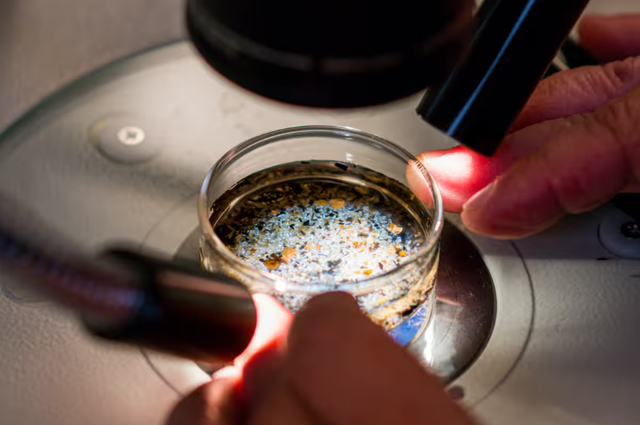
A recent study published in the journal Ecotoxicology and Environmental Safety has raised serious concerns in the scientific and medical community, after confirming for the first time the presence of microplastics in the follicular fluid of human ovaries. This unprecedented discovery raises major questions about the impact of plastic pollution on women's reproductive health and female fertility in general.
Microplastics, now also in the female reproductive system
The study was conducted at a fertility clinic in Salerno, Italy, where samples of follicular fluid taken from 18 women undergoing assisted fertility treatments were analyzed. The results were shocking: in 14 out of 18 cases, the researchers identified microscopic fragments of microplastics, composed mainly of polystyrene, polyethylene and PVC – materials commonly found in food packaging, cosmetics and industrial products.
Risk to fertility and long-term consequences
Follicular fluid is a vital component in the process of egg maturation and preparation for fertilization. The presence of microplastics in this delicate environment can negatively affect egg quality, hormonal function and the probability of a successful pregnancy. Scientists warn that this invisible pollution could be a new risk factor for female infertility, especially at a time when fertility problems are on the rise globally.
Microplastics – a silent enemy in our daily lives
This study is part of a new wave of research that is finding microplastics in human blood, placentas, and internal organs. Scientists are increasingly concerned about the effects that these microscopic plastic particles may have on the endocrine, immune, and now reproductive systems.
Urgent need for further research
Experts in the field are calling for in-depth research to fully understand the mechanisms of microplastics' impact on the human body, especially in relation to fertility. In the meantime, this discovery should serve as a call for reflection and action, both at the personal and institutional levels, to reduce exposure to plastics, through lifestyle changes, the selection of safer products, and stricter policies to protect public health.
This discovery emphasizes once again that the environmental crisis is no longer just outside us – it has now entered our bodies. In this new reality, women's reproductive health becomes a sensitive and powerful indicator of the impact that pollution is having on humanity's biological future.
Source: The Guardian





